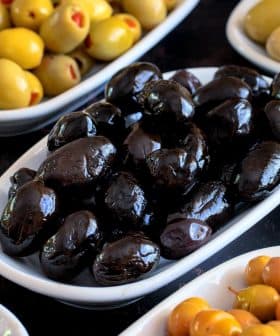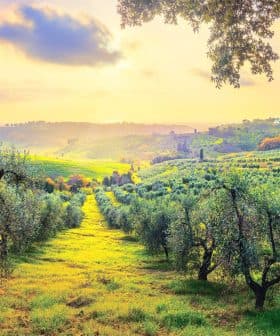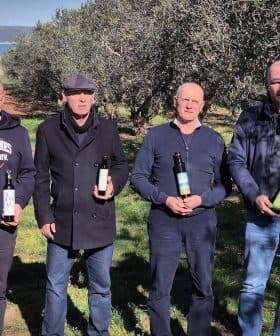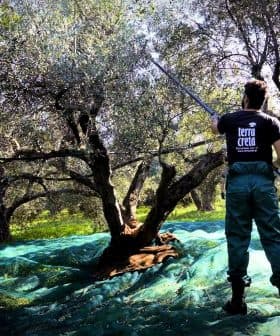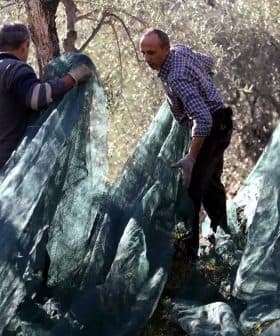Chalkidiki Table Olives Hit by Hail Ahead of Harvest
Hailstorms in northern Greece caused extensive damage to olive-producing areas in the Chalkidiki peninsula, knocking olives to the ground and denting the remaining fruits on the tree branches. The cost of the damage is estimated to be around €1.8 million, with concerns about the future of the region’s olive production if extreme weather continues to impact yields.
Hailstorms in northern Greece have caused extensive damage in olive-producing areas of the Chalkidiki peninsula, where the region’s characteristic green oval-shaped table olives are grown.
The hailstones knocked olives to the ground and dented the remaining fruits on the tree branches. The areas of Polygyros and Ormylia, among the most productive of the region, were most impacted.
“We try hard and spare no expense all year round for a good yield, and now this,” farmers affected by the hail told local media. “Let’s hope that ELGA [the Greek organization of agricultural insurances] will rise to the occasion to provide proper compensation and not just withhold money from our subsidies.”
ERT, the national broadcasting channel of Greece, reported that a 15-minute-long hailstorm in Ormylia almost completely destroyed the Chalkidiki table olives of the area ahead of harvest.
See Also:2022 Harvest UpdatesThe cost of the damage to olive groves caused by the adverse weather is expected to rise in Ormylia, according to some initial estimates.
“Out of 35,000 tons [of table olives] the area produces, 6,000 to 7,000 tons have been completely destroyed,” said Christos Tsipelis, head of the local Ormylia agricultural association. “Around 60,000 [olive] trees were hit [by the hail], and if we consider that the cost of cultivating a single tree is €30, the total financial loss inflicted amounts to €1.8 million.”
Harvest estimates for the Chalkidiki region predicted the table olive production to exceed 100,000 tons in the 2022/23 crop year, provided the weather conditions remained advantageous.
“There are 15 to 20 days left until harvest, and, fingers crossed, we hope no more erratic weather is coming our way,” said Vagelis Misailides, a farmer from the Simantra village.
“We can cope with the water shortage and the lack of workers in one way or another, but if extreme weather phenomena occur, then I am afraid that many fellow growers will shut down their businesses with dire consequences for the whole region.”
Last year, the olive trees of the Chalkidiki variety on the peninsula suffered from reduced fruition, resulting in an 80-percent lower yield than expected.
“If the weather is against us again this year, then the future of this Protected Designation of Origin product looks ominous,” said Misailides. “However, in recent years, the income we receive is satisfying provided the yield is robust and not lost due to inclement weather.”


